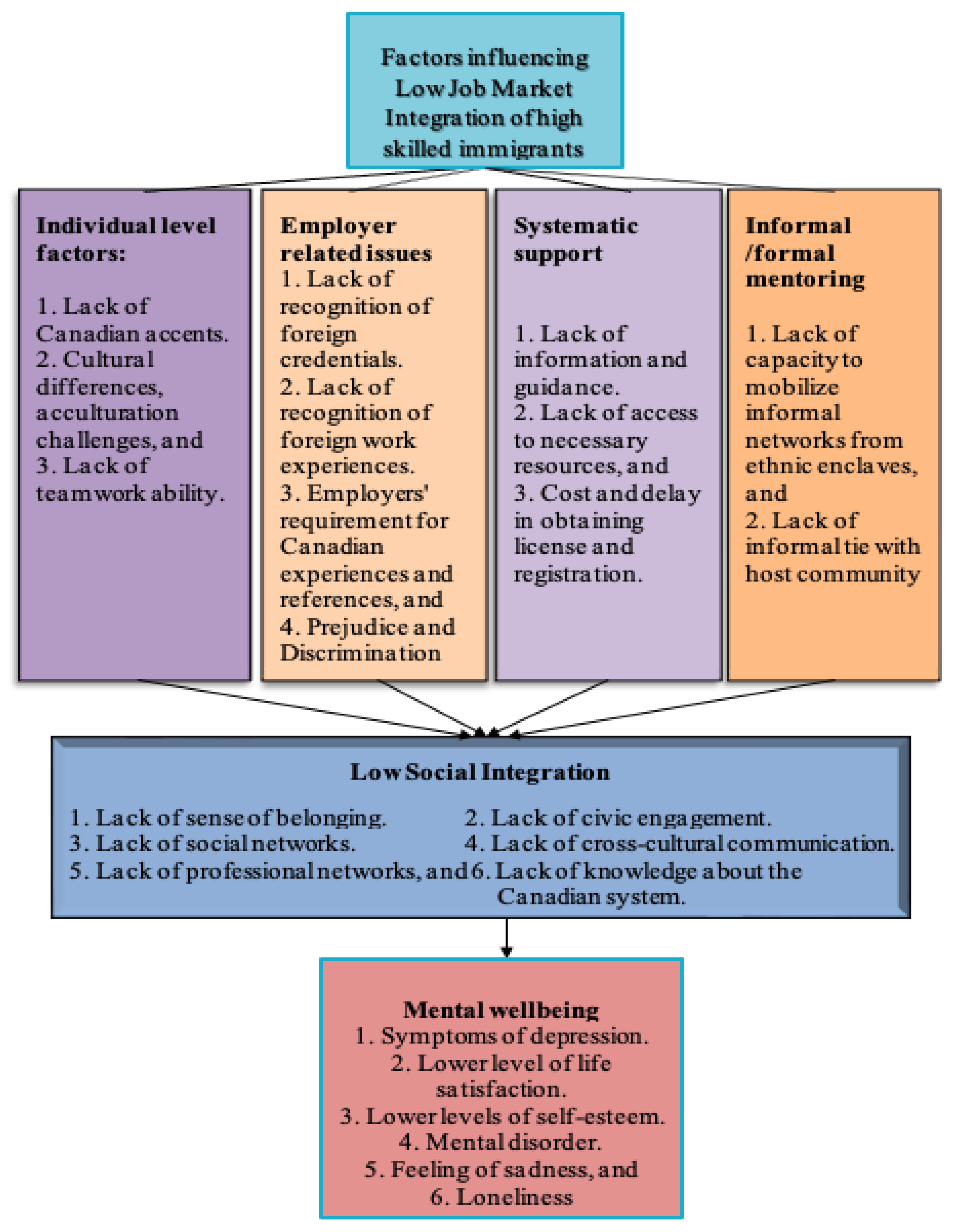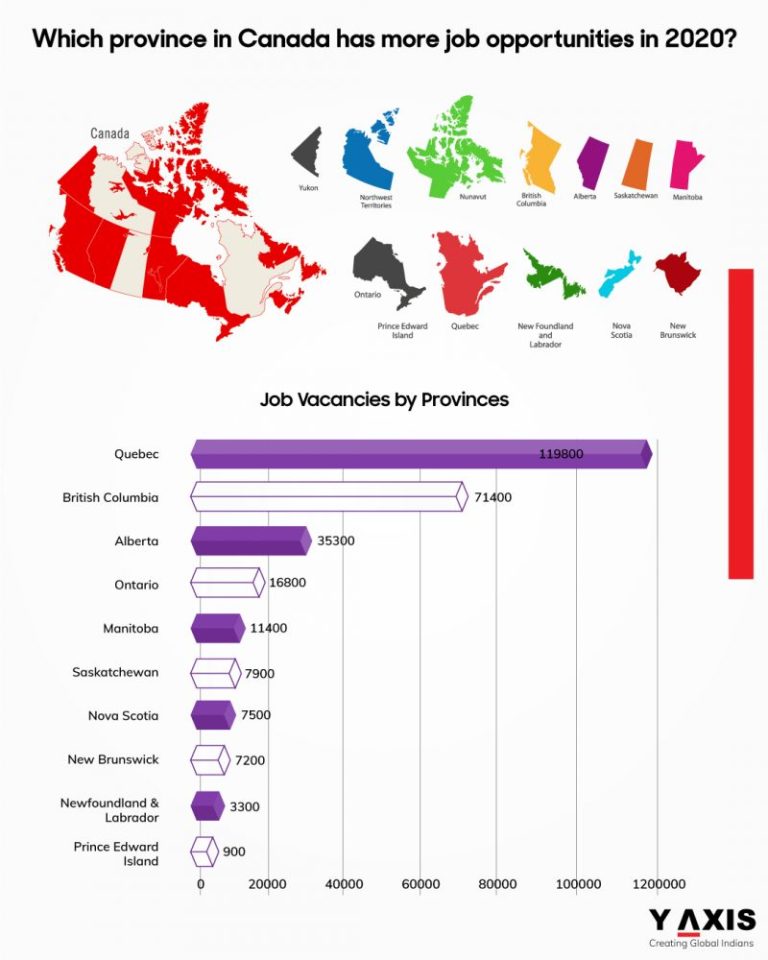How to navigate the Canadian job market as an immigrant?
Are you an immigrant looking to navigate the Canadian job market successfully? Look no further! In this article, we will provide you with valuable tips and guidance to help you navigate the Canadian job market as an immigrant. Whether you are new to Canada or have been here for a while, we understand the unique challenges you may face when searching for employment. We will cover everything from networking strategies to maximizing your qualifications, so you can confidently step into the Canadian job market and land your dream job.

Understanding the Canadian Job Market
Overview of the job market in Canada
The Canadian job market is known for its diversity and opportunities. With a strong economy and a high demand for skilled workers, Canada has become an attractive destination for immigrants seeking employment. It is important to understand the key factors that shape the job market in order to navigate it successfully.
Canada has a mixed economy, with various sectors contributing to its growth. The country’s economy is heavily reliant on industries such as natural resources, manufacturing, technology, healthcare, finance, and education. These sectors offer a wide range of job opportunities and are often in need of skilled workers to fill critical roles.
Key sectors in the Canadian job market
Understanding the key sectors in the Canadian job market can help you tailor your job search and focus on industries with high demand. The natural resources sector, including mining, oil and gas, and forestry, is a significant contributor to the Canadian economy. Additionally, the manufacturing industry, particularly in automotive, aerospace, and food processing, provides numerous job opportunities.
The technology sector is also rapidly growing in Canada, with cities like Toronto, Vancouver, and Montreal emerging as tech hubs. Other sectors such as healthcare, finance, and education continue to have a consistent demand for skilled professionals.
Labor laws and regulations in Canada
Familiarizing yourself with the labor laws and regulations in Canada is crucial to ensure you are aware of your rights and responsibilities as an employee. The Canadian employment standards define minimum wage, working hours, overtime pay, and other important aspects of working in the country.
It is important to note that each province and territory in Canada may have its own specific labor laws, so it is necessary to understand the regulations that apply to your specific location. Familiarize yourself with the employment standards of the province or territory where you intend to work to ensure compliance with the law.
Employment opportunities for immigrants in Canada
Canada has a strong focus on welcoming immigrants and providing employment opportunities. The government has implemented various programs and initiatives to support immigrant integration into the Canadian job market. Programs such as the Express Entry system and Provincial Nominee Programs enable immigrants to apply for permanent residency based on their skills and qualifications.
In addition, there are various settlement agencies and organizations across the country that offer support services to immigrants, helping them find employment and navigate the job market. These agencies often provide job search assistance, language training, skill development programs, and networking opportunities.
Preparing for the Canadian Job Market
Evaluating your qualifications and skills
Before entering the Canadian job market, it is important to evaluate your qualifications and skills to ensure they align with the requirements of the Canadian employers. Research the job market to identify the skills and qualifications that are in demand and consider upgrading your education or acquiring additional certifications if necessary.
Assessing language proficiency
Language proficiency is a key factor in finding employment in Canada. English and French are the two official languages, with English being the most widely spoken. Employers often require candidates to have a certain level of proficiency in either English or French, depending on the job and location.
Assess your language proficiency through standardized tests such as the International English Language Testing System (IELTS) or the Test d’évaluation de français (TEF). Improving your language skills by taking language courses or participating in language exchange programs can enhance your employability.
Gaining Canadian work experience
Canadian work experience is highly valued by employers as it demonstrates adaptability, familiarity with the workplace culture, and an understanding of local processes and practices. Consider gaining Canadian work experience through internships, volunteer work, or part-time jobs in your field of interest. This experience not only enhances your resume but also provides opportunities for networking and building professional connections.
Obtaining the necessary certifications and licenses
Certain professions and occupations in Canada require specific certifications or licenses to practice legally. Research the requirements for your chosen field and identify any certifications or licenses you may need. Obtaining these credentials before entering the job market will increase your chances of securing employment. Regulatory bodies and professional associations can provide information on the necessary certifications and licensing processes.

Building a Professional Network
Networking events and associations
Building a professional network is essential for job seekers in Canada. Networking events, industry conferences, and professional associations provide opportunities to connect with professionals in your field, learn about job openings, and gain valuable insights into the Canadian job market.
Attend networking events that are relevant to your industry and make an effort to actively engage and establish relationships with others. Joining professional associations related to your field can also provide access to networking events, mentorship programs, and job boards specifically tailored to your industry.
Utilizing online platforms and professional websites
In today’s digital age, online platforms and professional websites are valuable resources for networking and job opportunities. Create a professional online presence by building a LinkedIn profile and connecting with professionals in your industry. LinkedIn also offers groups and discussion forums where you can engage with like-minded individuals, share knowledge, and potentially find job leads.
Explore industry-specific job boards and websites that cater to your profession. These platforms often advertise job openings and provide resources for career development.
Connecting with fellow immigrants and their communities
Connecting with fellow immigrants who have already navigated the Canadian job market can provide valuable insights and support. Immigrant communities often have established networks and resources that can assist in your job search.
Joining immigrant-specific organizations and communities can provide opportunities to connect with individuals who have had similar experiences and may be able to offer guidance and support. These networks can also provide information on job leads, workshops, and events tailored for immigrants.
Engaging in informational interviews
Informational interviews are informal conversations with professionals in your field of interest. This is an opportunity to learn about their experiences, gain insights into the Canadian job market, and potentially uncover hidden job opportunities.
Reach out to professionals in your industry, either through personal connections or by cold-calling or emailing. Request a short meeting or phone call to discuss their career path, the industry, and any advice they may have for job seekers. Informational interviews not only provide information and guidance but also help expand your network and establish meaningful connections.
Crafting an Effective Cover Letter and Resume
Understanding Canadian resume formats and styles
The format and style of resumes in Canada may differ from those in other countries. Canadian resumes typically prioritize relevant work experience, skills, and achievements. It is important to tailor your resume to the Canadian job market and ensure it highlights the qualifications that employers are looking for.
Use a professional and clean format, with clear headings and concise bullet points. Include a summary or objective statement, relevant work experience, education, skills, and certifications. Avoid including personal information such as marital status or a photograph, as these are generally considered unnecessary in Canada.
Highlighting transferable skills and experiences
When applying for jobs in Canada, emphasize the transferable skills and experiences you have gained, even if they were acquired outside of Canada. Employers value skills such as communication, teamwork, problem-solving, and adaptability. Highlight how your previous experiences and skills can be applied to the Canadian job market and demonstrate your ability to contribute positively to a potential employer’s team.
Tailoring your resume to specific job postings
Tailoring your resume to specific job postings is an effective way to increase your chances of getting noticed by employers. Carefully review the job description and requirements and customize your resume to highlight the skills and experiences that are most relevant to the position.
Use keywords from the job posting to optimize your resume for applicant tracking systems (ATS) that many employers use to screen resumes. By aligning your resume with the specific requirements of the job, you demonstrate to the employer that you are a qualified candidate.
Writing a compelling cover letter
A well-crafted cover letter can complement your resume and provide additional information about your skills, experiences, and motivation to work for a specific company. Use the cover letter to showcase your enthusiasm for the position and the company, and explain how your skills and experiences align with the job requirements.
Keep the cover letter concise and focused, and address it to a specific person whenever possible. Use the cover letter as an opportunity to demonstrate your writing skills and attention to detail.

Job Search Strategies for Immigrants
Utilizing online job portals and websites
Online job portals and websites are valuable resources in the job search process. There are several popular job search platforms in Canada, such as Indeed, LinkedIn, and Workopolis, that regularly advertise job opportunities across various industries.
Create profiles on relevant job portals, upload your resume, and set up job alerts to receive notifications about new job postings. Take advantage of the search filters available to refine your job search by location, industry, experience level, and other criteria. Regularly check these platforms for new job postings and submit applications as soon as possible to increase your chances of being considered.
Seeking assistance from immigrant settlement agencies
Immigrant settlement agencies play a crucial role in supporting newcomers in their job search. These organizations provide a range of services including job search assistance, resume and cover letter critiques, interview preparation, and information about local job markets.
Contact the immigrant settlement agency in your area to inquire about the services they offer and how they can support you in your job search. They may have access to hidden job opportunities and can help you navigate the Canadian job market more effectively.
Attending job fairs and career expos
Job fairs and career expos are excellent opportunities to connect directly with employers and learn about job openings. These events bring together employers from various industries and provide a platform for face-to-face networking and interaction.
Research upcoming job fairs and career expos in your area and plan to attend. Prepare a professional resume and dress appropriately for the event. Take the time to visit each booth, talk to recruiters, and inquire about job opportunities. Follow up with any contacts you make at the event to express your interest and to stay on their radar.
Exploring hidden job market opportunities
The hidden job market refers to job opportunities that are not publicly advertised. Many employers prefer to fill vacancies through internal referrals or by directly approaching potential candidates. Exploring the hidden job market can be an effective strategy to tap into unadvertised job opportunities.
Networking plays a key role in accessing the hidden job market. By building connections, attending industry events, and engaging in informational interviews, you increase your chances of learning about these hidden opportunities. Stay proactive and make it known to your network that you are actively seeking new job opportunities.
Preparing for Job Interviews
Researching the company and interviewers
Thoroughly researching the company and its culture is essential before attending a job interview. Visit the company’s website, read about their mission, vision, and values, and familiarize yourself with their products or services. Gain an understanding of their industry and competitors, as well as any recent news or developments that may be relevant.
Researching the interviewers, if possible, can also help you establish a connection during the interview. LinkedIn is a valuable resource for finding information about the people you will be meeting with, allowing you to tailor your questions and conversation accordingly.
Practicing common interview questions
Practicing common interview questions can help you feel more confident and prepared during the interview. Research common interview questions for your industry and practice articulating your responses. Prepare examples from your previous experiences that demonstrate your skills and abilities.
Consider recording yourself during practice interviews or seeking feedback from a mentor or career coach. This can help you identify any areas for improvement and enhance your performance during the actual interview.
Demonstrating cultural understanding and adaptability
Employers value candidates who can demonstrate cultural understanding and adaptability, especially in diverse workplaces. Highlight your cross-cultural experiences, ability to work in diverse teams, and openness to learning about Canadian workplace norms.
Demonstrate your familiarity with Canadian workplace culture and provide examples of situations where you successfully navigated cultural differences. Showcase your ability to adapt to new environments and your willingness to contribute to a positive and inclusive work environment.
Preparing for virtual interviews
In recent years, virtual interviews have become increasingly common, especially during the COVID-19 pandemic. Preparing for virtual interviews requires additional considerations to ensure a smooth and professional experience.
Test your technology and internet connection prior to the interview to avoid any technical issues. Set up a quiet and well-lit space for the interview, free from distractions. Dress professionally as you would for an in-person interview and maintain eye contact with the interviewer by looking directly into the camera.
Navigating the Application Process
Understanding the Canadian hiring process
Understanding the Canadian hiring process can help you navigate each step more effectively. The hiring process typically involves submitting an application, followed by a screening process, interviews, reference checks, and, ultimately, a job offer.
Be proactive in following up after submitting your application to confirm its receipt and express your continued interest in the position. If you are selected for an interview, prepare in advance and, after the interview, send a personalized thank-you note to the interviewers to express your appreciation and reiterate your interest.
Fulfilling documentation and legal requirements
When applying for jobs in Canada, it is important to ensure you fulfill all necessary documentation and legal requirements. This includes having a valid work permit or visa if you are not a Canadian citizen or permanent resident.
Research the specific requirements for your situation and consult with immigration professionals or government websites to ensure you have the necessary documents and permits. It is crucial to have all legal requirements in order before accepting a job offer.
Securing work permits and visas
Securing a work permit or visa is a critical step for immigrants who wish to work in Canada. The type of work permit or visa you need will depend on factors such as your country of origin, intended duration of stay, and the nature of your employment.
The Canadian government offers various work permit programs, including the International Mobility Program (IMP), the Temporary Foreign Worker Program (TFWP), and the Post-Graduation Work Permit Program (PGWPP). Research the eligibility criteria for these programs and consult with immigration professionals to determine the most suitable option for your situation.
Negotiating job offers and contracts
Negotiating job offers and contracts is an important part of the application process, as it allows you to secure favorable terms and conditions. Research industry standards and salary ranges for similar positions to ensure you are being offered a fair and competitive package.
Consider negotiating other aspects of the job offer such as benefits, vacation time, or flexible work arrangements. However, be mindful of your approach and maintain a positive and professional attitude throughout the negotiation process.
Overcoming Barriers and Challenges
Addressing language barriers
Language barriers can be a common challenge for immigrants in the Canadian job market. Improving language proficiency through language courses, language exchange programs, and daily practice can help overcome this barrier.
Seek out opportunities to practice English or French, both in formal settings such as language schools and in informal settings such as community centers or language exchange groups. Taking additional language courses or working with a language tutor can also help improve your language skills and boost your confidence.
Dealing with cultural differences in the workplace
Cultural differences in the workplace can present both challenges and opportunities for immigrants. It is important to be open-minded, adaptable, and willing to learn about Canadian workplace culture.
Observe and learn from your colleagues and superiors, and ask questions if something is unclear. Contribute your unique perspectives and experiences, but also be mindful of cultural sensitivity and the need for effective communication across diverse teams.
Overcoming discrimination and bias
Unfortunately, discrimination and bias can exist in any job market. It is important to be aware of your rights as an employee and know the resources available to address any instances of discrimination or bias.
If you experience discrimination or bias, consult with legal professionals or organizations that specialize in protecting employee rights. Document any instances of discrimination and gather evidence to support your claims. Seek support from immigrant settlement agencies or organizations that can provide guidance and resources in dealing with discrimination.
Overcoming lack of Canadian experience
Lack of Canadian experience can be a common barrier for newcomers in the job market. However, there are strategies to overcome this challenge.
Highlight your transferable skills, relevant international experience, and any Canadian work experience you have gained through internships, part-time jobs, or volunteer work. Emphasize your willingness and ability to learn quickly and adapt to new environments.
Consider obtaining Canadian certifications or enrolling in Canadian educational institutions to enhance your credentials. Networking and establishing connections within your industry can also provide opportunities for mentorship, internships, and work experience, thereby helping bridge the gap of Canadian experience.
Utilizing Supportive Resources
Accessing government programs and services
The Canadian government offers a range of programs and services to support immigrants in their job search and integration into the job market. These programs often include language training, employment counseling, skills development, and financial assistance.
Research and access government programs and services specific to your situation and location. Employment centers, community organizations, and government websites can provide information on available resources and how to access them.
Seeking guidance from immigrant settlement organizations
Immigrant settlement organizations play a crucial role in supporting newcomers in their settlement and employment journey. These organizations offer a range of services including job search assistance, resume and cover letter writing, interview preparation, and mentorship programs.
Reach out to immigrant settlement organizations in your area for guidance and support. They can provide information on available resources, workshops, and networking events tailored to immigrants.
Getting support from mentorship programs
Mentorship programs can be invaluable for newcomers in the Canadian job market. Mentors can provide guidance, support, and industry-specific knowledge that can help navigate the job market more effectively.
Research mentorship programs in your field and connect with professionals who may be willing to share their expertise and experiences. Mentors can offer insights into the Canadian workplace culture, provide feedback on your resume and interview skills, and help you expand your professional network.
Finding language and skill development programs
Improving language and skills development is crucial for success in the Canadian job market. Language programs for immigrants are available at various levels and can help you improve your language skills in an immersive and supportive environment.
In addition to language programs, there are skill development programs offered by community centers, colleges, and universities. These programs provide training in specific skills and enhance your qualifications in a particular field. Research and enroll in relevant programs to enhance your employability.
Continuing Professional Development
Continuous learning and upgrading skills
Continuous learning and upgrading skills are essential for remaining competitive in the Canadian job market. Industries are constantly evolving, and staying updated with the latest trends and technologies can enhance your employability.
Seek opportunities for professional development, such as attending workshops, webinars, and conferences related to your field. Consider enrolling in online courses or pursuing additional certifications to further enhance your skills and knowledge.
Making use of professional development opportunities
Professional development opportunities can provide valuable insights and connections within your industry. Join industry-specific associations and groups to stay updated with industry news, trends, and best practices.
Participate in workshops, seminars, and webinars offered by professional associations. Attend conferences and networking events to connect with professionals in your field. Building a strong professional network not only helps in career advancement but also provides access to job opportunities, mentorship, and support.
Exploring Canadian educational institutions
Canadian educational institutions are highly regarded worldwide, and exploring educational opportunities can benefit your career prospects. Consider enrolling in Canadian colleges or universities to upgrade your qualifications or gain additional certifications.
Research and evaluate educational institutions based on your field of interest, location, and affordability. Many institutions offer flexible programs designed for working professionals, allowing you to balance your studies with your job search or current employment.
Joining industry-specific associations and groups
Joining industry-specific associations and groups can provide valuable opportunities for professional growth and networking. These associations often organize events, webinars, and networking sessions that allow you to connect with professionals within your industry.
Research industry-specific associations and groups that are relevant to your field and join as a member. Actively participate in their events, forums, and discussions to expand your knowledge, gain insights, and establish connections.
In conclusion, navigating the Canadian job market as an immigrant requires thorough preparation, strategic job search strategies, and a proactive approach. Understanding the job market, evaluating your qualifications, building a professional network, and continuously developing your skills are key elements to successfully finding employment. Overcoming barriers and challenges, accessing supportive resources, and engaging in continuous professional development will greatly enhance your chances of achieving long-term success in the Canadian job market.







